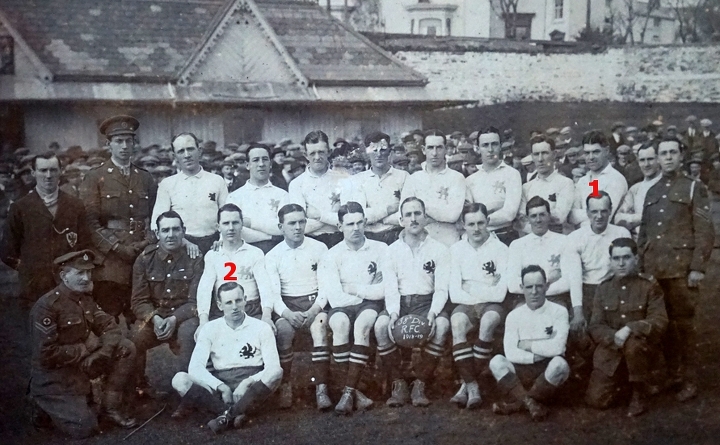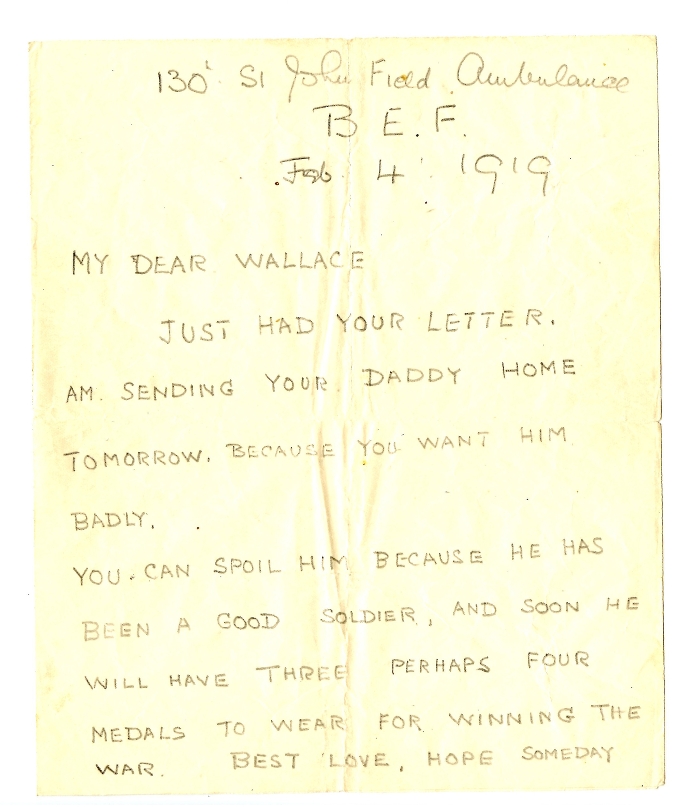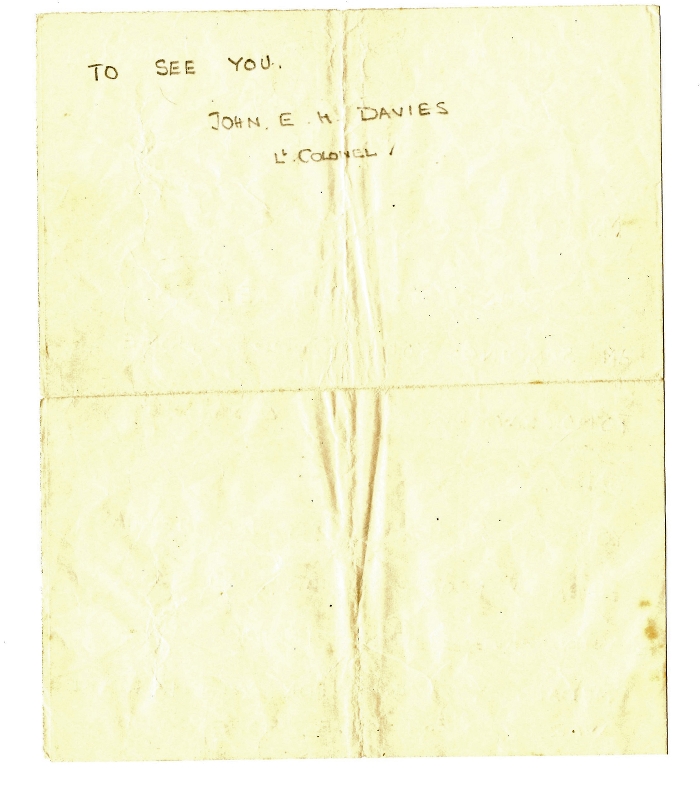After the War November 1918 – June 1919.
This page is under construction. As I work through the Unit War Diary and those private diaries that have been kindly send to me, I will add content to this page. I am working through the history of the 130th (St John) Field Ambulance in chronological order and will fill this page with full detail in due course
After the Armistice, the medical work of the unit continues but was gradually depleted of men, especially the miners who were needed back in Wales.
While the Unit comprised only a tiny proportion for the 38th (Welsh) Division (232 all ranks out of approximately 18,000), they acquitted themselves very honourably, both on the field of battle as well as the sports field. Two men of the Unit went on to play in the 38th Division Rugby team that toured during the 1918-19 season. 48086 Pte William Batchelor (1) and 48559 L/Cpl Trevor Nicholas M.M. (2) both played in the Division team. 48086 Pte William Batchelor went on to captain the Pontyclun Rugby Football Club in 1919 while 48559 L/Clp Trevor Nicholas M.M. was caped fop Wales playing one match for the national team in 1919.

The photograph above is by most kind courtesy of the Pontyclun Rugby Club and was presented to the club in 2009 by Malcolm Batchelor, grandson of 48086 Pte William (Bill) Batchelor.
Although the 130th (St John) Field Ambulance was only a tiny Unit of only 232 all ranks in a Division of approximately 18,000, they acquitted themselves very well both on the field of battle as well as the sports field. The 38th (Welsh) Division Rugby Team that toured after the end of the war comprised two men from the Unit. 1. 48086 Pte William Batchelor who went on to captain the Pontyclun RFC in 1919 and 2. 48559 L/Cpl Trevor Nicholas M.M. who went on to be Caped for Wales.
The legend below the photograph is as below. If anyone can provide any further information about the other players we would be delighted to hear from them. Please do be in contact.
Top row – left to right
? from Neath. Freathy from Penarth, Lt A Normand from Abertillery, A Jenkins from Llanelli, E Garn from Swansea, W Sims from Penarth, W Atheffy from Cardiff, W B Thomas from Ynysybuf, T Jomes from Pontypridd, W Batchelor from Pontyclun and L Stoddard from Penygraig
Middle row
F Balch – Trainer, T J Nicolas from Cardiff, B Beynon from Swansea, B Duncan from Cardiff, B Palmer (Captain) from Swansea, F Palmer from Swansea, J Davies from Swansea, W West from Swansea and G Taylor from Cardiff.
Bottom row
E Jenkins from Cardiff, J Hopsey from Swansea and W Griffiths.
The following, very touching letter (reproduced by the very kind permission of Eleanor, Granddaughter of 48192 Sgt Ernest Sweeting M.M. gives an insight into Lt Col J E H Davies and the respect he had for the men who served in the 130th (St John) Field Ambulance. Wallace was Sgt Sweeting’s son and would have been 7 or 8 years old in early 1919 and the letter is clearly written so it can be read by a child.



Lt Col Davies handed over command of what was left of the 130th (St John) Field Ambulance to Capt T W Melhuish on the 22nd April 1919 and left for home.
By 16th May 1919 the strength of the Unit was down to 9 RAMC, 5 RASC HT and 7 RASC MT men.
The Unit spent its’ final few weeks based at La Motte Brebiere (Lamotte- Brebiere) just east of Amiens. The 129th and 131st Field Ambulances were finally disposed and ceased to exist on the 22nd of May 1919 while the 130th (St John) Field Ambulance was not finally disposed of until the 10th June 1919. The final few men of the RASC (Motor Transport) were transferred or Vert Garland (aerodrome near Amiens), the RASC (Horse Transport) to the 38th Divisional Train and the final RAMC men to No 4 Stationary Hospital. Thus, the Unit that in its’ early weeks back in December 1914 was known as the 1st Field Ambulance, Welsh Army Corps, spent its’ last few weeks as the last Field Ambulance in the 38th (Welsh) Division.

Be the first to comment